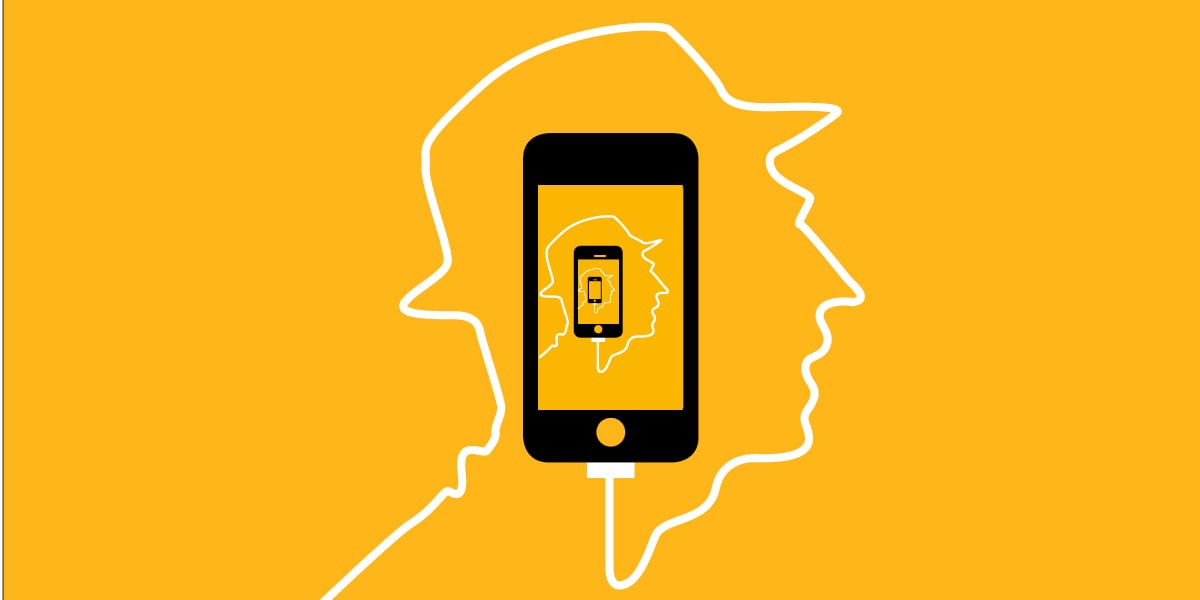The percentage of purchases made via a mobile phone or tablet will continue to grow dramatically in the coming years. By 2018, half of all purchases will be made via a mobile device. So predicts the renowned Forrester Research. In the Netherlands, digital commerce will grow by ten per cent each in the coming years. The Dutch now buy six per cent of their products via a mobile device. In a year's time, this will already be eight per cent. This is growing steadily. In this regard, it is clear that the app can be a strategic tool in marketing. "Apps offer possibilities that a mobile website does not have and are a permanent signboard on the user's smartphone," says Robbert van Hintum of The Appetizers; a new label of Capital Advertising.
Independent of the internet
Robbert: "Using an app instead of a mobile website definitely has advantages. Users spend 86% of their time within apps and only 14% on the mobile internet. And there are more advantages. The main one is that you can tap into the smartphone's sensors with the app. You know where you are, what time it is and, for example, what direction people are moving in. You can then use that information in the app. Since iOS8, it can even be realised that the app shows itself on the iPhone's home screen the moment it becomes relevant. For example, when you move near a particular shop, the app will appear."
"Apps can work completely independently of the internet. This means that an app can also be used in places where there is no coverage for a while. If there is coverage, an app can be constantly updated in the background, making it as up-to-date as a company's website."
Competitive advantage
"Especially now, companies can still distinguish themselves by having their own app," Robbert knows. "By no means every company has its own app and that makes it possible to grab a competitive advantage. Of consumers between 18 and 25 years old, 79% use apps. Between the ages of 25 and 49, the figure is 67%. So an app is a perfect and distinctive channel to reach your target audience." It can be objected that it is expensive to develop a separate app and that the Apples of this world also create barriers in terms of content. But Robbert immediately dismisses this: "We have a development environment here in which we can develop an app that runs on iOS, Windows Phone and Android and on both tablet and phone for just a few thousand euros. That price is really distinctive, but so is the fact that we develop for all those platforms at the same time. And as for the content; as long as it is distinctive and not too bare, you will also get past the Apple jury."
Plenty of opportunities
Robbert points out that apart from the well-known 'no nudity requirements', there are many more requirements placed on an app by Google and Apple. These are technical and design requirements. He knows them like no other and therefore knows within which frameworks he can build. At Apple and Android, applications are also rejected if they are aimed purely at marketing and advertising. This must therefore be expressly taken into account. Robbert: "That's very good. Apps should really be of use to the user. There are plenty of opportunities for that when you consider that you also have the location function and the camera at your disposal as a developer.
So you can also let people in the app take a picture of the coat they are looking for a scarf with..."
"The relatively low price of an app also attracts new relationships," says Robbert. "Because the threshold to having your own app is low, we even got a request for a four-day event now. For relations who want to do something longer with their app, and that is most of them anyway, it is good to know that you can do the content maintenance of an app completely yourself. So you put the latest wine offer, show and shoe fashion into the app yourself. Meanwhile, we make sure the app is also ready for any subsequent operating system. We also perform analytics on both the download behaviour around the app and its actual usage. We see which parts of the app are the most popular and can respond to that in further development as well."
Users spend 86% of time within apps and only 14% on the mobile internet
All in all, the app seems to have secured a permanent place within the range of communication tools and will always need to be embedded within the other tools as well. After all, via a site, dm and ads, attention for downloading the app will also have to start being generated. If done well, this is probably the most distinctive and effective way of communicating today. With that, the app seems an ideal addition to any campaign.
The benefits
- Your own app is distinctive
- An app is easy to use. You have information with a few clicks
- An app is a permanent 'signboard' on the smarthphone or tablet
- Information given by an app is seen by consumers as personal information and not information from an external source as with advertisements
- An app can be created quickly with The Appetizers' system, in 2-3 weeks you can already have a ready-to-use app
- An app can also be used offline
- An app increases customer satisfaction. Direct customer contact is possible

